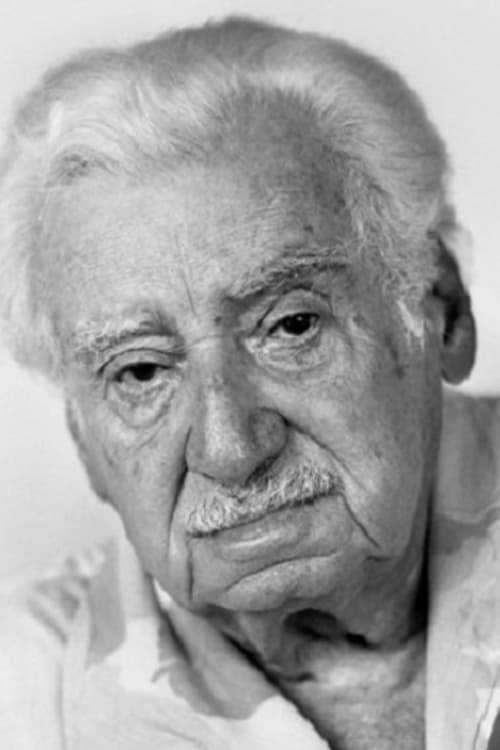
Jorge Amado
출생 : 1912-08-10, Itabuna, Bahia, Brazil
사망 : 2001-08-06
약력
Jorge Leal Amado de Faria (10 August 1912 – 6 August 2001) was a Brazilian writer of the modernist school. He remains the best known of modern Brazilian writers, with his work having been translated into some 49 languages and popularized in film, notably Dona Flor and Her Two Husbands in 1976. His work reflects the image of a Mestiço Brazil and is marked by religious syncretism. He depicted a cheerful and optimistic country that was beset, at the same time, with deep social and economic differences.
He occupied the 23rd chair of the Brazilian Academy of Letters from 1961 until his death in 2001. He won the 1984 International Nonino Prize in Italy. He also was Federal Deputy for São Paulo as a member of the Brazilian Communist Party between 1947 and 1951.
Amado was born on Saturday, 10 August 1912, on a farm near the inland city of Itabuna, in the south of the Brazilian state of Bahia. He was the eldest of four sons of João Amado de Faria and D. Eulália Leal. The farm was located in the village of Ferradas, which, though today is a district of Itabuna, was at the time administered by the coastal city of Ilhéus. For this reason he considered himself a citizen of Ilhéus. From his exposure to the large cocoa plantations of the area, Amado knew the misery and the struggles of the people working the land and living in almost enslaved conditions. This was to be a theme present in several of his works (for example, The Violent Land of 1944).
As a result of a smallpox epidemic, his family moved to Ilhéus when he was one year old, and he spent his childhood there. He attended high school in Salvador, the capital of the state. By the age of 14 Amado had begun to collaborate with several magazines and took part in literary life, as one of the founders of the Modernist "Rebels' Academy".
He was the cousin of Brazilian lawyer, writer, journalist and politician Gilberto Amado, and of Brazilian actress and screenwriter Véra Clouzot.
Amado published his first novel, The Country of Carnival, in 1931, at age 18. He married Matilde Garcia Rosa and had a daughter, Lila, in 1933. The same year he published his second novel, Cacau, which increased his popularity.
He studied law at the Federal University of Rio de Janeiro Faculty of Law but never became a practising lawyer. His leftist activities made his life difficult under the dictatorial regime of Getúlio Vargas. In 1935 he was arrested for the first time, and two years later his books were publicly burned. His works were banned from Portugal, but in the rest of Europe he gained great popularity with the publication of Jubiabá in France. The book received enthusiastic reviews, including that of Nobel prize Award winner Albert Camus.
In the early 1940s, Amado edited a literary supplement for the Nazi-funded political newspaper "Meio-Dia". Being a communist militant, from 1941 to 1942 Amado was compelled to go into exile to Argentina and Uruguay. When he returned to Brazil he separated from Matilde Garcia Rosa. In 1945 he was elected to the National Constituent Assembly, as a representative of the Brazilian Communist Party (PCB) (he received more votes than any other candidate in the state of São Paulo). He signed a law granting freedom of religious faith. ...
Source: Article "Jorge Amado" from Wikipedia in English, licensed under CC-BY-SA 3.0.

Self
Dorival Caymmi was one of the inventors of the Bahian imagination. In his 94 years of life, Caymmi composed, sang, wrote, illustrated and thought about his Bahia, even far from it. His family, partners, friends and fans remember his history, which made him one of the pillars of Brazilian culture.
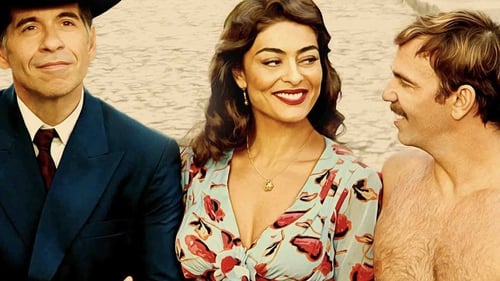
Novel
In a small city of Brazil, Flor (a very good looking woman) marries Vadinho, a very handsome and erotic man. Once married she finds he is a good-for-nothing. She works teaching cooking to her neighbours but he takes all her money to gamble. One day he dies. Flor misses the goods of the marriage so she marries again with a very correct gentleman – the owner of the drugstore (Teodoro). Now she’s very happy with her man, but misses the erotic moments with her previous husband. Then the ghost of Vadhino comes to earth to chase her.

Story
Commander Vasco Moscoso de Aragão entertains the small town of Periperi with the stories of his many adventures travelling around the world as a captain of the merchant navy. Stubborn Chico Pacheco is the only one in town who doesn't believe his tales.

Novel
Commander Vasco Moscoso de Aragão entertains the small town of Periperi with the stories of his many adventures travelling around the world as a captain of the merchant navy. Stubborn Chico Pacheco is the only one in town who doesn't believe his tales.

Original Story
Sabô (Giselle Itié) marries Lindolfo Ezequiel (José Dumont) in exchange for the life of his brother, who was sworn to death by the captain. The brunette is known as the most desired woman in the region and her husband is reputed to be a killer. One day, Ubaldo Capadócio (Fernando Pavão) arrives in the city of Cachoeira, in Bahia, and takes away hearts. The poet is a handsome man, has nine children and is married to three women: Rosecler (Aline Nepomuceno), Romilda (Luciana Fernandes) and Valdelice (Cristiana Ferreira). Rosecler is the most fiery and spendthrift, Romilda abandoned her butcher husband for Ubaldo and Valdelice is the most daring. In Cachoeira, Ubaldo sees Sabô and is attracted by so much beauty. The captain's wife surrenders to the poet's charms, but they are caught by Lindolfo Ezequiel. Then begins the saga of Ubaldo to escape death. That's where the miracle of birds happens.
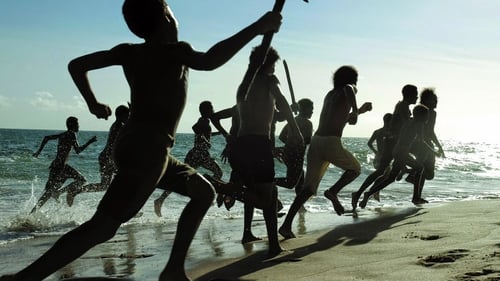
Novel
About the life and adventures of a gang of abandoned street kids known as "Capitães da Areia" (Captains of the Sands), in Salvador, Bahia, during the 1950s.

Novel
죽음을 한판의 축제로 만들어버리는 브라질산 흥겨운 코미디. 천둥번개가 몰아치는 밤 바다를 배경으로 킹카스의 내레이션이 울려 퍼진다. 떠돌이 선장인 그가 72세 생일잔치를 앞두고 죽자 빈민가 친구들이 딸에게 소식을 전한다. 바다에 그를 묻으려는 쪽과 예식을 중시하는 쪽 간의 왁자지껄 실랑이가 벌어진다. (2010년 제15회 부산국제영화제)
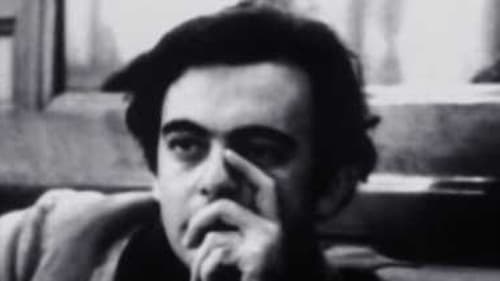
Documentary about Brazilian filmmaker Glauber Rocha, one of the most important names in the Cinema Novo, with interviews with some of his friends and colleagues.

Story
Coralito is the wife of Paulino, who dies but never leaves her. Especially when she marries the town doctor, Hernán.

Novel
Tabel abandons his luxurious family life in favor of a bohemian life with his eccentric marginalized friends. When Tabel dies, his daughter attempts to give him a decent burial, but his friends take the corpse away to bid him farewell in their own way.

Inspired by the life of the french-born photographer and ethnographer, Pierre Verger, the movie follows his journey between Bahia, Brazil and Benin, Oriental Africa, showing places and people he met and his life study project: the Candomblé culture.

Novel
The 20 episode miniseries edited into a 141 minute TV film. The beautiful Flor marries Vadinho and soon finds out he's spending all their money on gambles and has mistresses all over the city. Vadinho suddenly dies while partying during Carnival, and Flor, left helpless and full of debts, ends up marrying Teodoro, who's the exact opposite of her late husband.

Novel
Just when her family starts believing that she is dead, and that they can expect a rich heritage, Tieta returns from São Paulo to her native village in Bahia, which she had been forced to leave long ago because of some involvement with a goat herd. Believed to be fabulously rich - and nobody knows how - she brings to the great disappointment of her family a young step-daughter and heir. With the arrival of Tieta turmoil enters into the life of her family and their fellow villagers. Most particularly into the life of her nephew - promised to the Church - and the young aspiring mayor.

Ele Mesmo
Just when her family starts believing that she is dead, and that they can expect a rich heritage, Tieta returns from São Paulo to her native village in Bahia, which she had been forced to leave long ago because of some involvement with a goat herd. Believed to be fabulously rich - and nobody knows how - she brings to the great disappointment of her family a young step-daughter and heir. With the arrival of Tieta turmoil enters into the life of her family and their fellow villagers. Most particularly into the life of her nephew - promised to the Church - and the young aspiring mayor.

Self

Novel
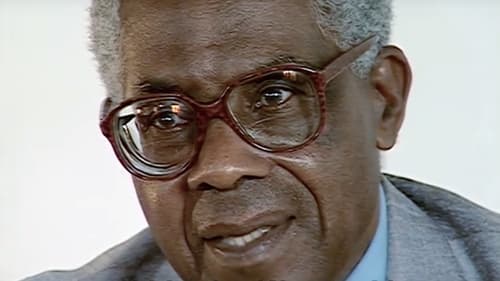
Self
A three-part study that introduces audiences to the celebrated Martinican author Aimé Césaire, who coined the term "négritude" and launched the movement called the "Great Black Cry".

Looks at the work of Brazilian photojournalist Sebastiao Salgado (b.1944). In his monumental photo-essay, Workers, Salgado’s dominant theme is the displacement of manual labor by technological advances. He documents the effects of this new industrial revolution on laborers in Eastern Europe, Cuba, Gdansk, Brazil, India, Sicily, and Bangladesh. Includes archival footage of Salgado’s life and commentary by artists, photographers, critics, and writers such as Jorge Armado, Robert Delpire, Jimmy Fox, and Arthur Miller.

Ele mesmo
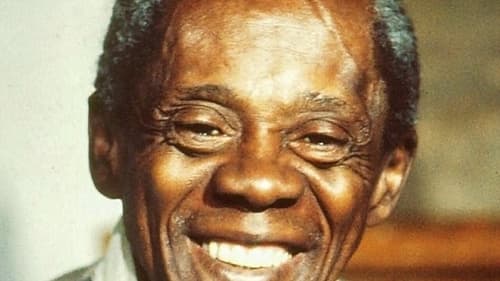
Novel
Jubiabá is a French-Brazilian film based on the homonymous novel by Jorge Amado. The film tells the story of the interracial love between the daughter of a rich Commander and Antonio Balduíno, a rascal, fighter and famous lover from Salvador.
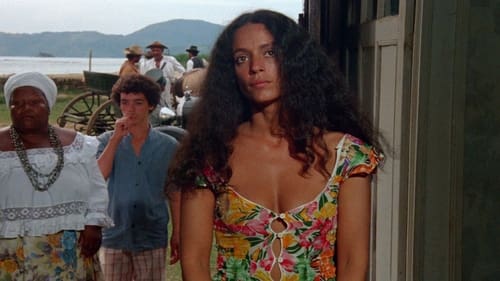
Novel
때는 1925년, 브라질 동북 해안의 작은 도시인 일례우스에서 술집을 운영하는 나십과 가난하고 배운 데 없지만 매력적인 가브리엘라가 만난다. 가브리엘라는 술집의 요리사가 되고 나십의 정부이다가 부인이 된다. 동명의 소설이 원작이다.

Novel
Not until three years after the death of her husband Jolly, Kay dares to move back into their former home, persuaded by her new fiancée Rupert. But soon her worst expectations come true, when not only her old memories haunt her, but also Jolly's ghost, who doesn't approve of her new mate. Invisible to anyone but Kay, he tries to prevent the wedding.

Ele mesmo

Jorjamado no Cinema foi feito para um programa de televisão consagrado ao escritor Jorge Amado. Nesse documentário, Jorge Amado é filmado em sua casa, rodeado por sua numerosa família; numa livraria, durante uma sessão de autógrafos de um de seus livros, em um cinema em Salvador, na avant-première do filme Tenda dos Milagres, de Nelson Pereira dos Santos, adaptação do livro homônimo de Jorge Amado. Glauber filma seu amigo com muito humor e carinho. A câmera vai evoluindo lentamente, sem cessar e com rapidez sobre o escritor, seus familiares, atores e atrizes do filme de Nelson, além de passar por objetos de rituais de candomblé que constituem o museu de Jorge Amado.

Novel
When a prominent U.S. Nobel Laureate arrives in Salvador, Bahia, the city with the largest black population in Brazil, he stirs emotions by championing a long-forgotten local writer named Pedro Archanjo, who believed that humanity would be improved only through miscegenation.

Novel
In a small city of Brazil, Flor, a cooking teacher, marries Vadinho, a very handsome and erotic man. Once married she finds he is a good-for-nothing who takes all her money to gamble. After his death, Flor misses the goods of the marriage so she marries again with a very correct gentleman - the owner of a drugstore. Now she's very happy with her man, but misses the erotic moments with her previous husband. One day, Vadinho comes back as a ghost to quench her desires.

Novel

Writer

Self
Brazilan writer Jorge Amado and his everyday life.

Story
Inspired by the classic novel by Brazilian cultural icon Jorge Amado, this is the story of a gang of homeless children lead by Pedro Bala. Set in Bahia, the film follows the adventures of Bala's gang of under aged outlaws as they steal, rape, find love, "capoeira" (a Brazilian form of martial arts) and African-Brazilian religion.

Novel
Inspired by the classic novel by Brazilian cultural icon Jorge Amado, this is the story of a gang of homeless children lead by Pedro Bala. Set in Bahia, the film follows the adventures of Bala's gang of under aged outlaws as they steal, rape, find love, "capoeira" (a Brazilian form of martial arts) and African-Brazilian religion.

Self
Through folklore manifestations and diverse artistic expressions, the film is a document that exalts and honors the Bahian culture.

Novel

Screenplay
An international anthology about the struggles of female workers around the world.

Novel
The agitated and tragic life of poet Castro Alves, and his romance with actress Eugênia Câmara.

Novel














